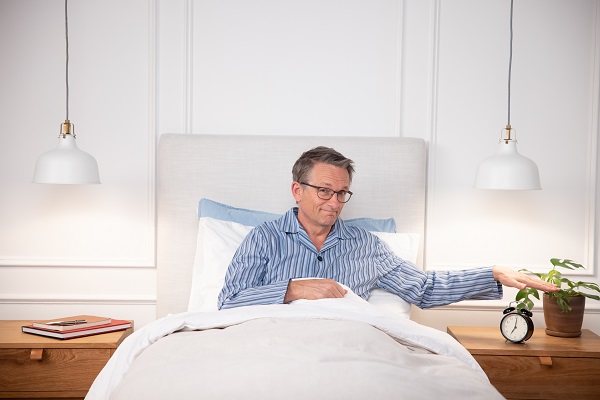Does the early bird really get the worm?

Early to bed and early to rise makes a man healthy, wealthy and wise. Or so they say. But what does the science say about waking up early? Is it really better for you?
We know that having good quality sleep is good for you. In fact, insufficient sleep can affect your mood and eating habits, and even contribute to health issues like obesity and diabetes.
But does it matter when you sleep? Here is what we know.
Our bodies are programmed to sleep at night
Generally, the body is programmed to sleep during the night, and be awake during the day. That’s because when it gets dark our bodies release the hormone melatonin, which readies our bodies for sleep.
Working with these hormones tends to give you better quality sleep. That means it’s ideal to fall asleep after dark and get some early morning sun when you wake up. Depending on where you live, and the season, that could mean falling asleep and waking up anytime between 8pm and 8am.
Watch: Winter Olympian Steph Prem shares her tips for a successful morning routine
Most adults need 8 hours of sleep
Everyone is different, but adults generally need between 7 and 9 hours sleep a night. Whether you are an early bird or a night owl, the most important thing is to get enough sleep for you.
This is where it can be tricky for natural night owls, who may be inclined to stay up late but have to get up early for other commitments like work or school. If this is you, you could consider changing your work hours or routine to allow you to get enough sleep.
Set your body clock with a regular routine
Your circadian rhythm is your body’s natural clock. It works on a 24 hour cycle and affects things like sleep patterns, body temperature and eating habits. Working with your body clock will make it easier to get a good night’s sleep.
You can help set your body clock by waking up at the same time each morning, and going to bed when you feel tired each night. Keep in mind, that some people tend to be natural night owls, while others are natural early birds.
Is waking up earlier better for you?
Sleeping at night is much better than sleeping during the day, but waking up early isn’t necessarily better for you. The most important thing is setting yourself up for regular, quality sleep.
When you sleep best will depend on your personal preferences, as well as other commitments like school and work.

In bed with Dr Michael Mosley
Set yourself up for the best night’s sleep. Dr Michael Mosley, author of Fast Asleep, answers all your sleep questions.
